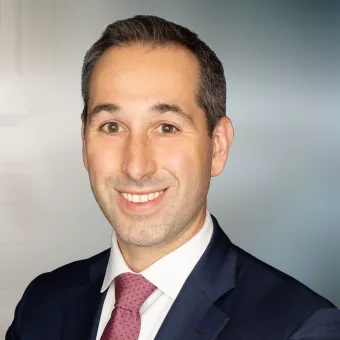
Case Overview
Diabetes medications called GLP-1 receptor agonists (Ozempic®, Mounjaro® and others) faced shortages for years. Today, many of these drug shortages are officially considered “resolved.” The diabetes medication shortage was likely due to increased demand for the drugs as weight loss aids.
Key takeaways about diabetes medication shortages
- Diabetic medication shortages impacted GLP-1 medications, including Ozempic, Wegovy® and Zepbound®.
- The shortage for injectable semaglutide drugs (Ozempic and Wegovy) officially ended in February 2025. The shortage for injectable tirzepatide drugs (Mounjaro and Zepbound) officially ended in December 2024. Trulicity® (dulaglutide) has been on the shortage list since August 2022 and remains there.
- When a drug appears on the FDA Drug Shortage List, compounding pharmacies receive temporary authorization to manufacture the drug to help meet demand. However, patients need to be wary of substitute and compound medications when dealing with the shortage of GLP-1 drugs.
What diabetes medications are out of stock?
The recent diabetes medication shortage impacted GLP-1 medications, including Mounjaro, Ozempic, Wegovy, Zepbound and Trulicity.
Glucagon-like peptide-1 receptor agonists (GLP-1 RAs) trigger the same effects as the naturally occurring GLP-1 hormone. GLP-1 medications can help patients with diabetes manage their blood sugar levels. They can also help obese or overweight patients lose weight.
Many of these drugs have had intermittent supply shortages since 2022. The supplies of these drugs can vary from day to day. Supplies to the United States have been limited for the past 18 months or longer. This has forced patients with diabetes to contact pharmacies regularly. Some patients haven’t always been able to find a pharmacy with enough drugs to fill their prescriptions.
Although manufacturers are investing in creating expanded supplies, they expect intermittent shortages to continue into the foreseeable future.
The FDA has warned patients about supply issues, even now that tirzepatide and semaglutide are no longer officially in shortage. The warning on the drugs’ pages reads: “Even when a medication is available, patients may not always be able to immediately fill their prescription at a particular pharmacy. That is especially true for refrigerated products and products with multiple dose strengths, due to factors like ordering practices and incentives, cold chain logistical considerations, and retailer capacity constraints. Patients may experience variability at a particular pharmacy location regardless of whether a drug is in shortage.”
Weight loss drug shortage
GLP-1 drugs can help patients manage their blood sugar levels and regulate their appetite. This also makes them effective for managing chronic weight issues.
The U.S. Food and Drug Administration (FDA) has approved some GLP-1s to treat only type 2 diabetes, while others are approved to aid weight loss. However, many doctors prescribe GLP-1s for “off-label” use. For example, a doctor might prescribe Ozempic (approved to treat type 2 diabetes) off-label to a patient without diabetes to help manage weight loss.
Why is there a GLP-1 drug shortage?
GLP-1 drugs are being prescribed on- and off-label for weight loss in overweight or obese patients. Alongside this increase in weight loss-related prescriptions, demand for the drug has risen sharply for cosmetic weight loss. This rise in popularity for cosmetic use has contributed to the diabetes drug shortage.
Aggressive advertising may also be at play. Novo Nordisk began advertising the weight loss capabilities of Ozempic as early as 2018. From 2018 to 2023, Novo Nordisk reportedly spent $884 million on television ads related to Ozempic and Wegovy in the United States. Many of those ads mentioned weight loss.
How does the shortage affect people with diabetes?
GLP-1 medications are critical for people with diabetes. When a patient with diabetes misses a medication dose, it can lead to fluctuations in the patient’s blood sugar levels. This, in turn, can lead to serious health complications, including:
- Cardiovascular disease
- Eye damage
- Foot tissue damage
- Hearing impairment
- Kidney damage
- Nerve damage
- Skin problems
Additionally, those with uncontrolled type 2 diabetes may have a greater risk of dementia and depression.
Because of the drug shortage, many diabetic patients can’t find the GLP-1 medications they need.
How to treat diabetes during the drug shortages
Not having access to medication can be life-threatening for someone with type 2 diabetes. Amid shortages, some patients may consider visiting a compounding pharmacy or spacing out the medication they do have. Both solutions may come with serious risks.
Patients should talk to their doctors before changing their treatment at any time.
Should you take substitute medications from a compounding pharmacy?
Amid shortages, some people have turned to substitute diabetes drugs from a compounding pharmacy. Many health experts warn patients away from compounded medications.
Compounded drugs are medications tailored to the needs of an individual patient. A licensed pharmacist or physician may create the compounded drug. Or, someone being supervised by a licensed pharmacist may create the drug.
Unlike brand-name drugs, compounded drugs are not FDA-approved. The FDA does not review compounded medications for safety, effectiveness, or quality. If a compounded drug is poorly made or contaminated, it can result in serious patient injuries.
The FDA has received adverse event reports related to compounded semaglutide. Reports concern the use of salt forms of semaglutide instead of the base form of semaglutide. Compounded drugs using semaglutide salt forms may not be as safe or as effective as the brand-name product.
Talk to your doctor before making any decisions to replace your diabetes drugs.
Is it safe to space out diabetes drug dosages?
Not necessarily. Any missed dose of a diabetes medication may cause increased blood glucose levels. That condition could lead to serious health complications.
Diabetes patients should avoid skipping or spacing out doses. They should also consult their doctor about how to handle the medication shortage. Some doctors may suggest switching to another GLP-1 RA drug or an alternative diabetes treatment.
When will Ozempic, Wegovy and other diabetes drugs be in stock again?
The shortages from Ozempic, Wegovy, Mounjaro and Zepbound are officially considered “resolved,” according to the FDA. However, the agency warns patients that they may still experience supply issues.
Although drug makers are taking steps to try to increase the production of these drugs, it’s not clear when the intermittent shortages will end. Novo Nordisk recently announced a $6 billion investment to increase production, yet it still expects ongoing delays in bringing the new supply to the market.
If your treatment has been affected by the diabetes drug shortages, talk to your doctor about your options. You can also check with the FDA Drug Shortages website for the latest information on shortages.
Frequently asked questions about the diabetes medication shortage
Is there a shortage of Ozempic?
There was an Ozempic shortage from August 2022 through February 2025. On February 21, 2025, the FDA announced the shortage was over. However, patients may still experience supply issues at their local pharmacies.
How are diabetes medication makers reacting to the shortage?
In response to the shortages, drug manufacturers reportedly invested in additional facilities and strategized ways to increase production.
Additionally, some manufacturers looked at reducing marketing to curb demand for the drugs. For example, Novo Nordisk, which manufactures Ozempic and Wegovy, committed to pausing advertising in an attempt to address shortages. However, it’s not clear whether the drug maker followed through and paused its full advertising campaign or if any of their other actions led to the end of the shortage.
Our diabetes drug litigation experience
At Motley Rice, our attorneys have represented thousands of victims who suffered serious injuries after using prescription and over-the-counter drugs. If drug manufacturers fail to adequately warn patients and prescribers about side effects, you may be able to file a claim for your injuries.
Read more about our medical drug litigation experience.
Do not stop taking a prescribed medication without first consulting with your doctor. Discontinuing a prescribed medication without your doctor's advice can result in injury or death. Mounjaro, Ozempic, Wegovy, Zepbound, Saxenda, Victoza and Trulicity remain approved by the U.S. Food and Drug Administration.
What diabetes medications are out of stock?
Why is there a GLP-1 drug shortage?
How does the shortage affect people with diabetes?
How to treat diabetes during the drug shortages
When will Ozempic, Wegovy and other diabetes drugs be in stock again?
Frequently asked questions about the diabetes medication shortage
Our diabetes drug litigation experience
- Sources
- ABC News. Novo Nordisk Announces $6B Investment in Ozempic, Wegovy Amid Shortages.
- Aesthetic Surgery Journal. Public Interest in the Off-Label Use of Glucagon-like Peptide 1 Agonists (Ozempic) for Cosmetic Weight Loss: A Google Trends Analysis.
- Healthline. Miss a Dose? What to Do If You Forget to Take a Type 2 Diabetes Pill.
- Mayo Clinic. Diabetes.
- NPR. Ozempic’s Popularity Leads to Shortages for People With Type 2 Diabetes.
- UCHealth Today. Shortages of Popular Weight Loss Drugs Prompt Warnings Not to Use Compounded Versions of Ozempic, Wegovy, Mounjaro and Zepbound.
- U.S. Food and Drug Administration. Compounding Laws and Policies.
- U.S. Food and Drug Administration. FDA Drug Shortages.
- U.S. Food and Drug Administration. Human Drug Compounding.
- U.S. Food and Drug Administration. Medications Containing Semaglutide Marketed for Type 2 Diabetes or Weight Loss.


